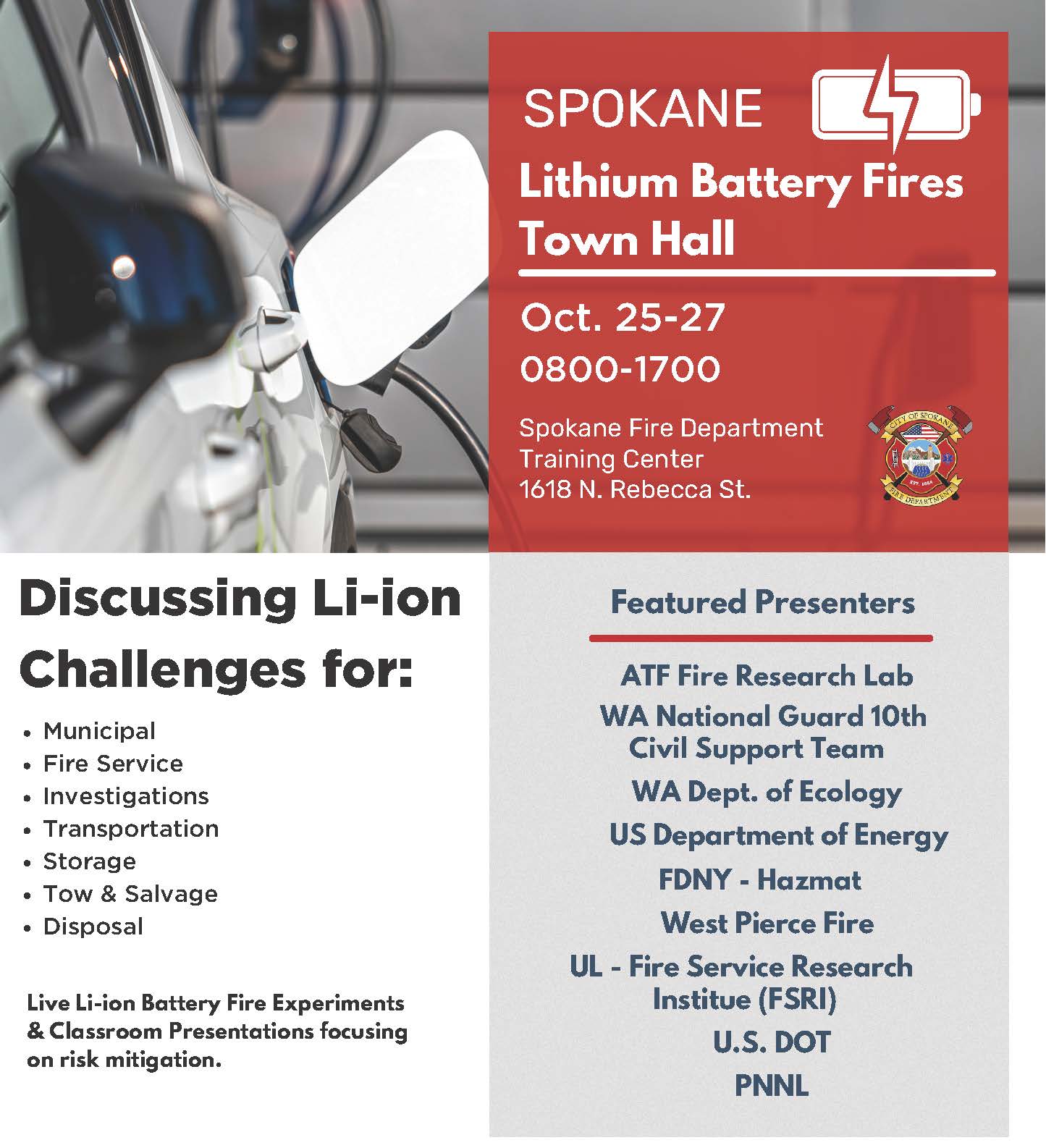
The workshop is primarily intended for those working in fire services, government, and salvage or towing. For more information, or to register, contact the City of Spokane Fire Department.
Over the past several years, lithium batteries have become the power source of choice for everything from cell phones to portable tools to electric cars. But the popularity of this type of battery brings with it new challenges for firefighters and other first responders when lithium batteries catch fire. To help, the City of Spokane Fire Department will host a multi-day workshop centered on responding to battery fires for first responders.
“Once ignited, lithium battery fires burn extremely hot and produce toxic smoke and waste. This can make for an increased risk to firefighters, so they need to know what to expect and how to safely respond to this type of incident,” said Sam Hunn, the Washington Department of Ecology Eastern Region response lead.
A recent emergency response in Spokane sparked a discussion among first responders about the unknowns related to lithium battery fires and a desire for additional training. Earlier this year, Ecology’s Spills Program joined local, state, and federal officials in responding to a structure fire at a Home Depot hardware store in North Spokane. The fire, which was later found to be caused by arson, started in the store’s lawn and garden area and ignited lithium batteries used to power cordless tools.
“We saw firsthand how quickly fires involving lithium batteries can escalate, and the difficulties involved in cleaning up waste left from lithium fires,” Hunn said. “Because of this incident, we began to pursue some educational opportunities that will help us keep responders and the public safe.”
Now, the City of Spokane Fire Department; the U.S. Bureau of Alcohol, Tobacco and Firearms; and Ecology have developed a series of seminars and hands-on sessions for local responders that will be presented Oct. 25-27 at the Spokane Fire Department’s training center.
Presenters will include Pacific Northwest National Laboratory, Ecology’s Spill Response team, and the Washington National Guard’s 10th Civil Support Team, among others. There will also be a controlled burn of lithium batteries to give first responders the chance to observe the combustion process and collect air and waste samples to better determine impacts to human health and the environment, and prepare them to coordinate efforts during a real event.
The workshop is primarily intended for those working in fire services, government, and salvage or towing. For more information, or to register, contact the City of Spokane Fire Department.

